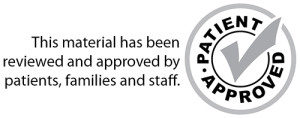
Finding balance between over-treating and withholding medical intervention at the end of life remains problematic when patients are not afforded palliative care. John was one of my patients – another victim of this predicament. He had recently retired and been diagnosed with advanced lung cancer. While never really liking doctors, he had his share of them while hospitalized for the diagnostic workup, chest tube insertion to drain fluid from his lung cavity and his first round of chemotherapy. John was discharged home, but returned to the ED the following day, experiencing difficulty breathing and his heart racing. IV fluids and sedation seemed to ease his symptoms and he pleaded to return home. I was uncertain if this was in his best interest and whether he had the appropriate necessary resources.
While I questioned his treatment goals, his wife insisted that they were realistic. John and Betty hoped to “even things out” – get the cancer under control and give him a little more time to live. John was pleased that he had great health insurance, but was well-aware that the co-pays were piling up and that Betty could eventually end up destitute. I admired John’s conscientiousness and quipped, “Yeah, you don’t want to get stupid about this.” I struck a nerve with John and essentially fired him up. I expressed sympathy for John and Betty being caught between a rock and a hard place. I was on the side of him receiving medical intervention, but who was on the other side of the gurney? Who would give him permission to defer being admitted to the hospital?
If patients and family members have the intention to “even things out,” palliative care needs to be offered to patients enduring end-stage disease. John and Betty were both very receptive to this proposal. When people claim to take the good with the bad and the yin with the yang – peace, harmony and personal empowerment are possible. I gladly arranged palliative care services for John and he was released from the ED. With her husband receiving palliative care, Betty had another emergency number to call besides 911. If John took a turn for the worse at home, Betty would have the option to simply hold his hand and comfort him without being considered negligent. Palliative care promotes much hand holding aside medical care and opposes aggressive medical intervention that is often outside the bounds of compassionate end-of-life.
The newfound insight provided by my experience with John prompted me to think about my dad. Dad does not wish to be perceived as stupid regarding his end-of-life predicament and is adamant about not being transferred to the hospital from his assisted-living residence. My sister works for a hospice corporation and I questioned if it had palliative services available for Dad in Illinois. We had a simultaneous reaction of embarrassment, realizing that we both have an ethical duty as healthcare providers to promote patient autonomy and choice. However, we had not offered Dad the dignity inherent to free will, essentially limiting his choices. As his medical power of attorney, she explored options and found a local nurse practitioner who frequents Dad’s assisted-care facility, providing palliative medicine for the residents. He now has palliative care as a choice. My sister and the entire family have agreed, all’s well that ends well if Dad’s wish for never returning to the hospital is honored.
Leave a Reply